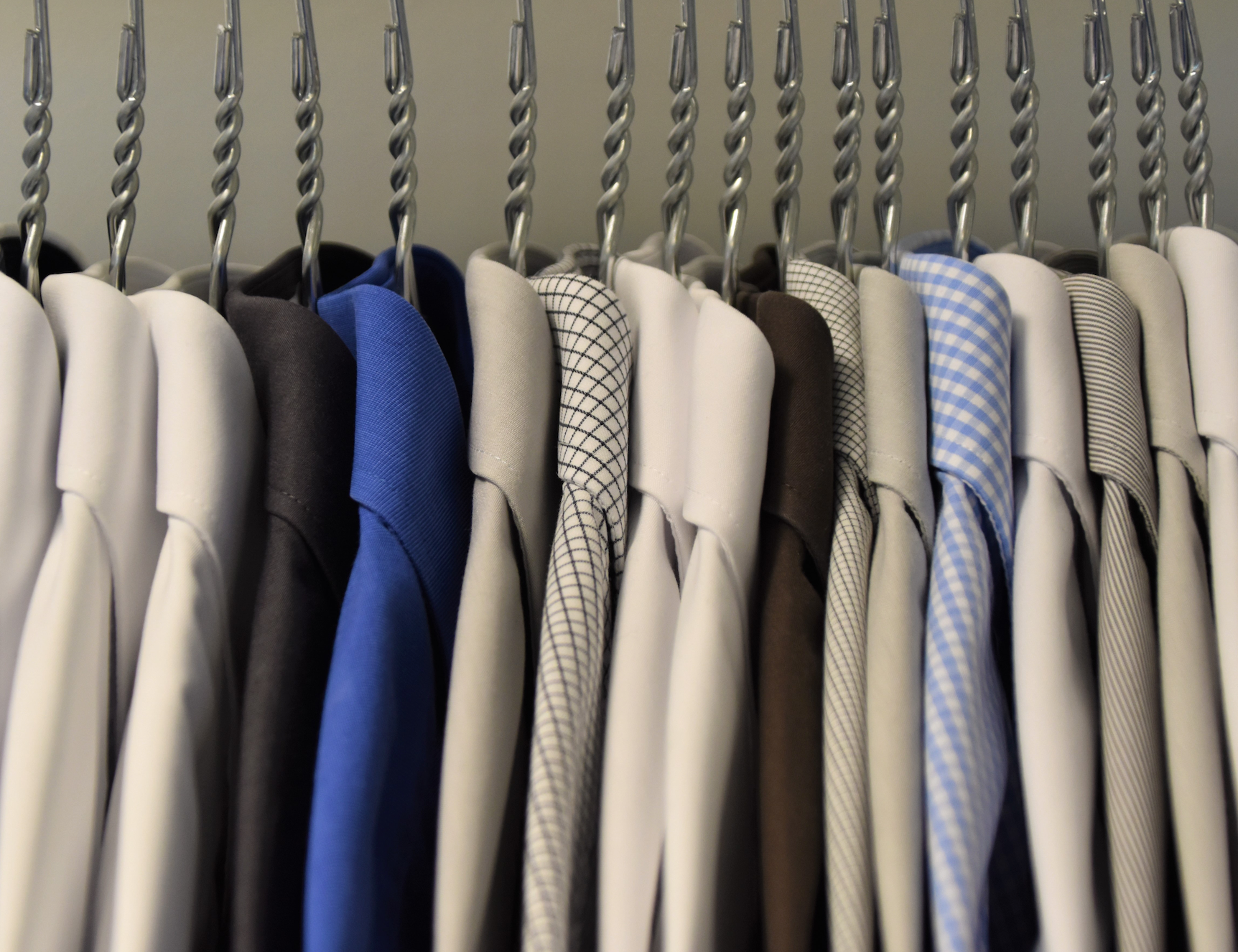According to a YouGov survey, laundering and ironing are among the top five chores Americans hate the most. Even though we dislike these chores, we can’t help but do them because we need to look good when we step out of the house. Fortunately, there’s a convenient alternative to ironing your clothes, and that’s switching to clothes made with wrinkle-free fabric.
What is wrinkle-free fabric?
Wrinkle-free fabrics are materials that do not crumple or lose shape after washing or when exposed to stress. Since wrinkle-free clothing cannot rumple, you can store and wear them as you please without ironing.
Wrinkle-prone clothing develops wrinkles because of the nature of the fibers. For instance, polyester fabrics can develop wrinkles when heated and rapidly cooled. The heat loosens the bonds holding the polymers together, and as the fabric cools, the polymers take new shapes, leading to creases in the clothing’s folded parts.
On the other hand, cellulose-based fabrics, like cotton, look smooth when wet but change shape and crinkle during drying. That’s why steam ironing is best for smoothening such clothes.
What Are the Characteristics of Wrinkle-Free Fabrics?
To help you better understand wrinkle-free fabrics, let’s look at the features that set them apart from wrinkle-prone materials:
Weave Complexity
The type of weave used to build a fabric can affect its wrinkle resistance. Royal oxfords, jacquards, imperial twills, and other fabrics that have thick or big weaves are usually more wrinkle-resistant. On the other hand, fabrics with barely perceptible weaves, such as broadcloth fabrics, are more wrinkle-prone.
Fabric Type
Natural fabrics like cotton and linen are not wrinkle-resistant. However, wool is one natural fiber that is wrinkle-resistant. Other wrinkle-free fabric options are synthetic materials like nylon, spandex, and acrylic.
Top cotton and linen clothing manufacturers make their outfits wrinkle-resistant by blending polyester or other synthetic fibers into their fabrics. Besides making the clothing wrinkle-free, blending polyester with cotton and linen will make the fabric more durable. A good example is our UltraClub Ladies Classic Wrinkle-Resistant Short-Sleeve Oxford with a 60% cotton and 40% polyester blend.
Chemical Treatment
Some textile manufacturers chemically treat fabrics to prevent wrinkles. Mild treatments will keep your clothing wrinkle-free throughout the day after ironing. Clothes with stronger treatments do not need any ironing or steaming after washing. However, after years of wear and washing, the chemical treatment can wear off, leading to the fabric becoming wrinkle-prone.
Please note that not every anti-wrinkle chemical treatment is safe. Fabric treatments that contain formaldehyde are especially harmful because they can cause itchy skin, rashes, and blisters in some people. Also, studies show that long-term exposure to formaldehyde fumes may cause respiratory problems and cancer.
Weight
The thickness of heavy fabrics prevents wrinkles from forming in the material. Popular heavy wrinkle-free fabrics include denim, suede, canvas, and corduroy. Even if such fabrics develop creases, the wrinkles should disappear after wearing the clothing for a few minutes. How? The outfit will drape over your body, and the weight will stretch out the creases.
The Best Wrinkle-Free Fabrics
Here are your best wrinkle-free fabric options for clothing if you want to avoid using your iron as much as possible:
Polyester
Polyester is a highly versatile and wrinkle-free fabric. The material is excellent for making everything from formal shirts and dresses to activewear. Since polyester is durable, you can wear it for years without worrying about fading or tearing. It’s also stain-resistant, easy to clean, and affordable, making it ideal for workwear.
While ironing polyester is usually unnecessary, your polyester clothing may develop creases if taken out of the dryer and folded while hot. You can remove such creases by lightly misting the fabric with water and ironing out the wrinkles on low heat.
Wool
Wool is a biodegradable fabric made from sheep fleece. The fabric is suitable for wet and cold weather because it is water-resistant and offers excellent insulation. Since the material is also breathable, light wool clothing can keep you cool during summer.
Even better, wool is a wrinkle-free fabric. After taking it out of the washer, your wool clothing will return to its original shape. However, do not put wool clothing in a dryer unless the label says you can. If the label does not state “machine wash” or “dryer,” putting the clothes in a dryer may shrink it.
Lyocell
Lyocell or Tencel is a soft and hypoallergenic fabric commonly used for making female tops and dresses. Even though it is 50% more absorbent than cotton, lyocell is very wrinkle-resistant. The fabric is also durable and stretchy, making it ideal for activewear. However, like wool, lyocell does not fare well in dryers.
Other fabrics that don’t need ironing include:
- Denim
- Permanent press
- Rayon
- Spandex
- Knits
- Cashmere
Fabrics That Are Susceptible to Wrinkles
If you want the convenience of having only wash-and-wear clothes in your closet, avoid these three fabrics:
Cotton
100% cotton clothing comes highly recommended for its breathability and luxurious feel. However, note that cotton clothes are high maintenance.
The natural material fades and wears out faster than synthetic fibers like polyester. Cotton clothes also retain odors and may shrink in your washer. Even worse, cotton is very prone to wrinkling.
Fortunately, you can find clothing made with cotton and polyester or cotton and wool blends. These blended fabrics have all the desirable features of the combined fabrics minus the shortcomings of pure cotton. An excellent example is our UltraClub Tall-Classic Wrinkle-Free Oxford shirt. Its 60% cotton and 40% polyester fabric is breathable, wrinkle-resistant, easy to maintain, and doesn’t bleed colors.
Linen
Linen is a natural fabric with impressive durability and moisture absorption. The material dries very quickly, but it can be more prone to wrinkling than cotton. If you want linen clothing that’s less wrinkle-prone, opt for linen-polyester blends.
Rayon
Unlike cotton and linen, rayon is a synthetic fabric. Since it feels comfortable and cool on the skin, it is ideal for summer clothing. While plain rayon is wrinkle-prone, variants like lyocell and Tencel are wrinkle-resistant.
Let Thread Logic Supply Your Wrinkle-Free Garments
Are you looking to make custom outfits for your team, family, or friends? Use a wrinkle-free fabric if you want everyone to always look good in your personalized clothing. At Thread Logic, we can make custom wrinkle-free and embroidered garments according to your unique specifications. We handle projects of all sizes and even offer bulk discounts.
Check out samples of our work today, and contact us to discuss your project and place an order.


